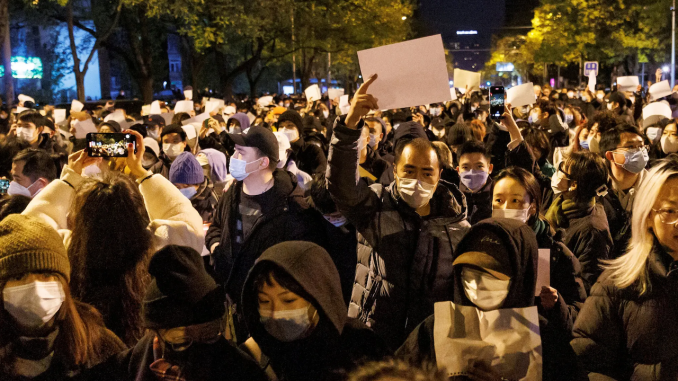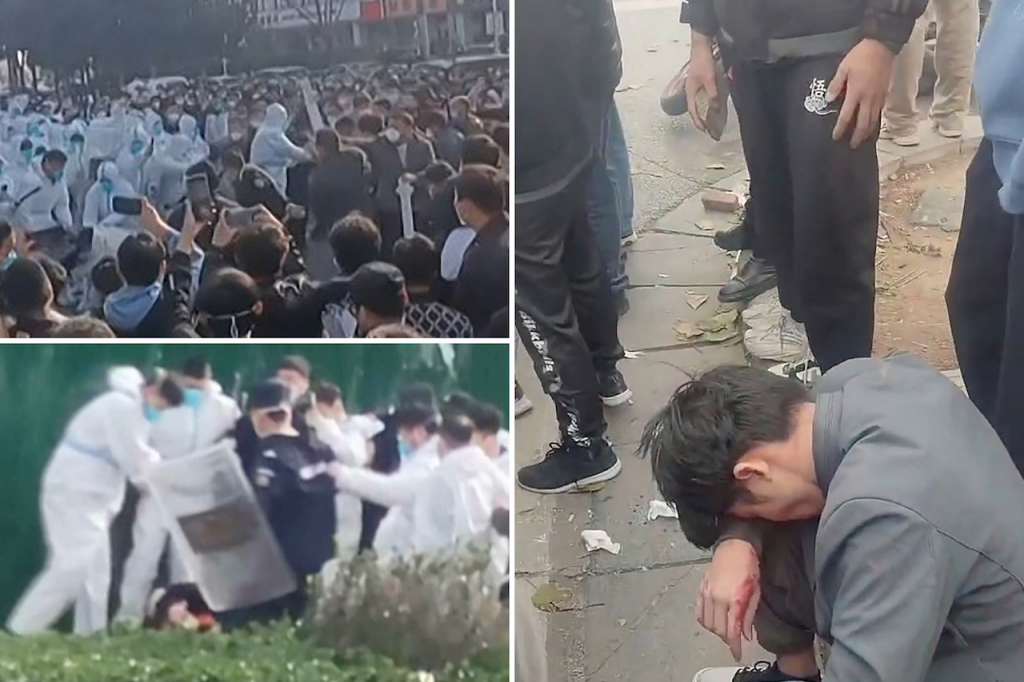
Online and on social media, Chinese families blamed authorities for the death of a four-month-old girl after access to medical care was delayed because of the government’s harsh, so-called zero-Covid policies. In southern China, protesters broke out of buildings locked down because of those same zero-Covid policies, confronting health care workers and ransacking stores to take desperately needed provisions. A fire in western China killed 10, and angry residents blamed the same zero-Covid policies for delays in the arrival of firefighters to fight the blaze. In Shanghai, the nation’s largest city, protesters held up blank pieces of paper to symbolize all the many things they are not allowed to say. And in central China, at the enormous Foxconn iPhone factory, thousands of workers, tired of being lied to about wages and work conditions and after being kept in partial captivity for months on end, tore down barricades and used them as shields and weapons in battles with riot police.
After decades of being more and more heavily surveilled by the Chinese state (using the latest surveillance methods and technologies), after almost three years of draconian Covid polices, after repeated waves of workers’ strikes over a range of issues, and 32 years after the famous Tiananmen Square protests took place in Beijing, the anger of the Chinese people is once again rising.
There is no central leadership to this nationwide movement, and many of the protesters come from different walks of life. While many — like the Foxconn workers — are clearly working-class and infuriated about their treatment as workers, many who consider themselves middle-class are also joining the protests. They are demanding not only an end to repressive state policies and better working conditions or pay, but also a real say in their own lives and in the conditions that affect them every day. Students at some of China’s most elite universities have begun their own protests, and people have shown a willingness to join the protests in support of different oppressed ethnic groups, like the Uyghurs.
The police and other government agencies have of course already arrested thousands and done their best to completely repress this upsurge of anger. The state will continue to use all its surveillance capabilities and all its brutal police power to crush any dissent. And of course, the interests of western capitalism (Apple and many others who exploit the labor of Chinese workers) stand behind the Chinese state in this struggle to guarantee their supply of cheap labor. For an excellent description of both the context for and the significance of these protests, see this interview on Democracy Now with Eli Friedman, a scholar of comparative labor who studies China.
While it is too early to tell what will happen, it is clear that millions (tens of millions, hundreds of millions?) of Chinese people are fed up with their so-called communist government and its authoritarian practices. And these uprisings against an incredibly repressive state show the potential for working people to challenge their rulers even under the most challenging of circumstances.





